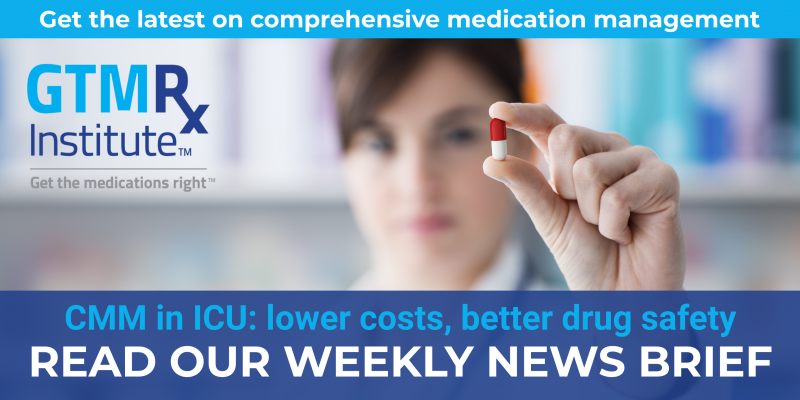Practice Transformation
Highmark group customers with integrated medical and pharmacy benefits saved an average of $150-$230 per member per year compared to those with carved-out pharmacy benefits, according to independent analysis by HealthScape Advisors. The savings were driven by shorter episodes of care, enhanced chronic care management and increased member engagement. The analysis is based on three years of claims data, from 2017 to 2019. Group clients who offered integrated benefits saw the length of hospital stays reduced by 3.9% and that members were 14% more likely to engage in chronic care management programs. (Fierce Healthcare; study announcement)
Deaconess Health cut its 30-day readmission rate from 14% to less than 7% after customizing its remote monitoring program to patients who would most benefit. It saved $500,000 in costs associated with readmission, including penalties. Deaconess also estimates it saved roughly $6.5 million in total costs associated with care. Patient satisfaction is high: 93% percent of the patients in the program are satisfied with its ease of use, and 94% are happy with the care they’re getting at home. (mHealth Intelligence)
Evidence & Innovation
Participation of a clinical pharmacist in a multidisciplinary ICU team through comprehensive medication management may reduce health care expenditures and improve drug safety, according to research published in the Journal of Pharmaceutical Health Services Research. The study, which took place over six months in a neurosurgery ICU, involved 162 patients and 1,524 interventions. The top pharmacotherapy problems identified: drug selection (33.3%), dose adjustment (17.32%), fluid and electrolyte management (12.99%) and drug discontinuation (12.07%). The minimum and maximum benefit–cost ratio was 8.4:1 to 12.7:1 and net benefit was $169,205 to $266,633 over the six-month period. (Journal of Pharmaceutical Health Services Research)
Policy Solutions
Allowing the HHS secretary to negotiate drug prices could save businesses $195 billion and another $98 billion for workers by 2020, according to analysis conducted for West Health by Milliman. Analysts specifically looked at HR3; CBO analysis from 2019 estimated that the bill would save Medicare $456 billion over the course of a decade. West Health’s analysis is the first to estimate the impact on private insurance, Becker’s Hospital Review reports. In related news, the Biden administration recently stated it has no timeline on deciding whether it will allow states to import drugs from Canada. (Becker’s Hospital Review; West Health announcement; Kaiser Health News)
To control prescription drug costs, some policymakers have called for external reference pricing (ERP), which would tie prices for high-cost drugs to those in other countries. Most EU countries use some form of ERP, and it’s used in several others, including Brazil, Canada and Jordan. The Commonwealth Fund conducted a literature review to assess the potential impact on the U.S. The conclusion: “While short-term savings from a U.S. ERP program may be substantial, they will be difficult to sustain. Over the longer term, U.S. pricing policy could develop its own value-based approach, and any role for ERP would be limited.” (Commonwealth Fund)
As part of its Health Interoperability Outcomes 2030 project, the ONC wants help creating aspirational and achievable “health interoperability outcome statements.” Specifically, it wants help completing these statements: “Because of interoperability, ______ before/by 2030,” and “Because of interoperability, before/by 2030 [who] will [what].” To submit, visit HealthIT.gov/HealthInterop2030 or Twitter @ONC_HealthIT with #HealthInterop2030. Submissions will be accepted through July 30, 2021. (Fierce Healthcare; blog post)
Note: sources that have an asterisk require login to view the article.
In Case You Missed It!
On May 25, 2021, the GTMRx National Task Force- Building Vaccine Confidence in the Medical Neighborhood had Karen Minyard, Ph.D., MN, CEO of the Department of Public Management and Policy for Georgia Health Policy Center speak to “The Role of Backbone Organizations in Fostering Collective Action.”
Join us for a webinar to hear from two leading experts on ways to implement a buy-right strategy when working with medical carriers, PBMs, etc., and in structuring benefit plan design on the medical and pharmacy side as you pursue value-based care.
Find more information here.
Register here.
This roundtable will be focused on payment, policy and practice reform to support optimized medication use. The event will be held on June 23, 2021 from 2 – 5 pm ET. Speakers to be announced soon.
Interested in sponsorship or attending? Contact Jeff Hanson (e: [email protected]).
Our Employer toolkit, developed by the GTMRx Employer Toolkit Taskforce, explores the benefits of CMM for individuals and for the employers who pay for benefits.
Covers topics, such as:
- What is CMM
- How CMM differs from traditional MTM
- The ROI of CMM in practice
- Patients that benefit the most from CMM services
- CMM & value-based strategies (return-on-investment)
- CMM & Pharmacogenomics testing
- Employer call to action
Find more information on its development and what others are saying in our press release. Find other, employer-related resources.
Download the Employer Toolkit today!
Employers want a healthy, productive workforce. They want to eliminate waste. They want health care that works. They want the investments they make in primary care programs designed to manage chronic conditions and in medication management programs to create value; mitigate risks; and decrease hospitalizations, ER visits and other services that impact total cost of care.
They can make that happen. Read more.
AmazonSmile is an easy way for 0.5% of your qualified purchases go to the GTMRx Foundation at no cost to you. And signing up is simple—go to smile.amazon.com and select “Get the Medications Right Foundation” as your charity of choice. If you prefer to directly donate instead, you can do so here.
Adding the foundation on AmazonSmile will help us continue to provide no cost educational webinars, issue briefs, weekly news briefs and promote the need for transformation of our current system of medication use through social media campaigns.




